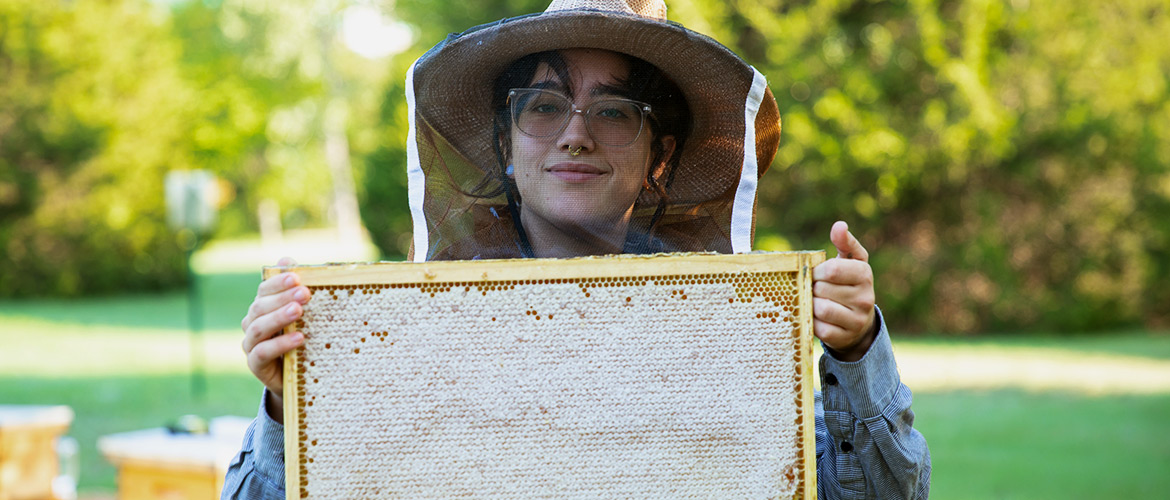There’s a buzz in the air at Blue Cross and Blue Shield of Texas’ (BCBSTX) headquarters. It’s the hum of tens of thousands of new honeybees.
BCBSTX’s Richardson office recently installed two hives on the north side of the building as part of its sustainability push. The hives house nearly 100,000 Italian honeybees that aren’t interested in bothering humans.
A beekeeper from Alveole, a company that helps businesses, schools and other organizations bring bees to their buildings, will maintain the hives and educate BCBSTX employees about the bees’ role in environmental sustainability.
“We work with this insect that is almost universally loved and very docile,” says Noni Ángel, an Alveole beekeeper caring for the BCBSTX hives. “Yet some clients are not thinking about their native biodiversity or environment at all. Then they have this insect they can connect with and we can start those larger conversations.”
Bees have an outsized influence on the ecosystem. They spend their lives flying miles from home looking for food sources and, moving from flower to flower, they collect pollen on their legs and underbellies and spread it around the environment during their hunt for pollen and nectar.
That nectar is needed to produce everyone’s favorite bee product: honey. Each fall, beekeepers will harvest about 100 jars from the BCBSTX hives. The harvest will fluctuate depending on the health of the bees and local rainfall. The honey will be available for sale to employees.
For Ángel, whose previous work in sustainable farming cultivated a passion for the environment, the project is about educating others about bees and their effect on the local ecosystem.
“The bigger impact is education,” she says. “We can use beehives as an avenue to talk about the environmental concerns threatening their hive. That also starts larger discussions about how those same things are threatening our own environment.”
As pollinators, bees help grow many of the crops we eat, including chocolate, coffee and many healthy foods. Bees also produce resources with medicinal properties.
But pesticides and climate change are killing wild bee communities. So BCBSTX’s two hives represent a small act of conservation and an educational opportunity.
“Some will simply see the bees as a novelty, but I genuinely hope that most people who engage with this program, on any level, come to understand it as a barometer of the health of the larger ecosystem,” says Terry Bridges, the BCBSTX facilities representative overseeing the hives. “We as co-inhabitants of the planet have to recognize and accept our role in protecting the ecosystem.”
Richardson’s climate, hot summers with long periods of drought can make life difficult for bees. July and August are the most dangerous months for these insects, but the beekeepers will provide water and insulation to keep them cool and set them up for success, Ángel says.
“Usually if we give them enough resources to survive the harsh conditions and we support them by limiting our inspections, they're able to beat the heat.”

